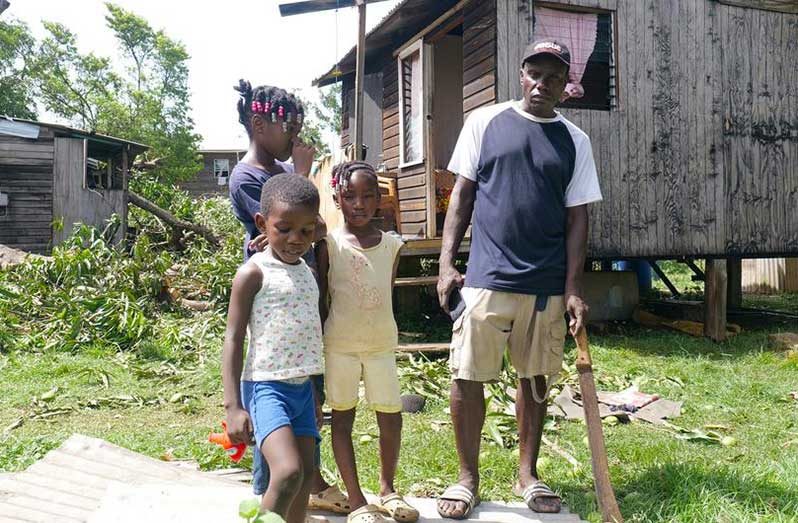UNICEF and partners have pre-positioned life-saving supplies and stand ready to provide services to children and families in several countries.
The first major hurricane of the year, Hurricane Beryl made landfall in the southeast Caribbean on July 1, causing widespread damage. The winds, torrential rains and flash flooding could put at least 3 million children in the Caribbean at risk, according to UNICEF estimates.
Hurricane Beryl tore through Grenada, Saint Vincent and the Grenadines, Barbados, and Saint Lucia, bringing high winds, storm surges, and heavy rain that has damaged safe spaces for children, including homes and schools.
“As Hurricane Beryl continues its path through the Caribbean Sea, all efforts must be made to prevent loss of life, and keep children safe,” said Karin Hulshof, UNICEF Regional Director for Latin America and the Caribbean. “Our teams across the Caribbean are ready to support national efforts in providing humanitarian assistance to families in need.”
While extreme weather events put the lives of the most vulnerable children and families at risk, UNICEF supports emergency preparedness efforts throughout the region.
“Investing in national capacities to prepare for and respond to climate-related emergencies, and provide essential services for children is critical,” added Karin Hulshof.
UNICEF and partners have pre-positioned life-saving supplies in several countries in the Caribbean Basin, including medical kits, educational kits, essential water supplies, sanitation and hygiene materials (such as water tanks, large bottles and water purification tablets), and key equipment such as high-quality tents, which will be deployed as needed.
Latin America and the Caribbean is the second most disaster-prone region in the world. In the Caribbean, 1.9 million people, including half-a-million children and adolescents, are affected by disasters each year. Small Island and Developing States in the Caribbean are particularly vulnerable to climate shocks, due to their small size and extreme exposure to natural hazards, and the effects of climate change.
This year, UNICEF has requested US$12.4 million to prepare for, and respond to emergencies in Latin America and the Caribbean, including in countries in the Caribbean Basin. (UNICEF)



.jpg)








